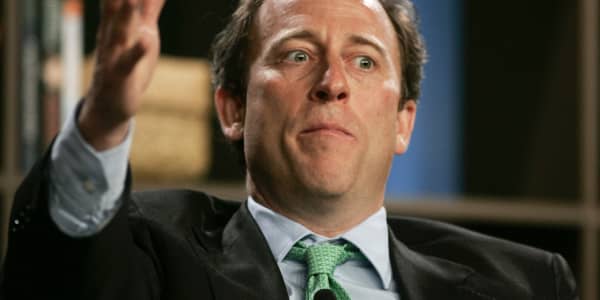Parsing the transcripts of Federal Reserve meetings may still be a preoccupation for a lot of investors, but it isn't for financial advisors and their clients.
Ron Carson, founder and CEO of Carson Wealth Management Group, did not receive a single call from clients about Thursday's release of the Fed's March meeting minutes yesterday. "We watch these things, but we don't react quickly to them," he said.
The release of the Fed minutes gave the stock market a brief bump as investors cheered the committee's decision to scrap the 6.5 percent unemployment target as a condition for raising interest rates. The fed funds rate remains at 0.25 percent.
Josh Brown, CEO of Ritholtz Wealth Management, said his clients weren't obsessing on the Fed's meeting minutes, but they were still concerned about monetary policy and its effects on the investment landscape.
Read MoreFed: 6.5% threshold 'outdated'
"Our clients are interested in the broader strokes of Fed policy and our take on them, but they don't key in on a report this specific," he said. Neither does Brown himself, for that matter.
He added: "No one can profitably invest based on scuttlebutt about minutes released weeks after a meeting. It's noise."
While financial advisors, collectively, are willing to leave the short-term trading on Fed expectations to the flash boys, they still appreciate the crucial role that Fed monetary policy has had on the markets and on investor psychology.
"There's no question that what the Fed does is important, so what the Fed says is also important, but it gets to a level of being silly," said Tim Maurer, director of personal finance for the BAM Alliance. "The market gets pummeled because of a perceived change in the mind-set of [new Fed Chairwoman] Janet Yellen last month, and now the meeting minutes show that she and the Fed are still willing to do whatever it can to support the economy."
Indeed, the report dispelled worries that Yellen had become more hawkish on interest rates, as the markets feared last month.
The scrapping of the unemployment target suggested that the Fed remains primarily focused on driving economic growth. Nevertheless, advisors are mindful that their clients are still hypersensitive about everything the Fed says and does.
Read MoreChoosing bonds vs. bond funds
"Clients don't need action, but they do need conversation and hand-holding," said Paul Auslander, director of financial planning at ProVise Management Group. "They want to know where interest rates are going and how the new Fed chairwoman could affect their portfolio. Financial advisors who don't communicate about it with their clients do so at their own peril."
It's not generally a long conversation, he said.
It's no secret that most people think interest rates will probably go up from here. But I don't think we have to worry about it for a year or longer.Paul Auslanderdirector of financial planning at ProVise Management Group
The stock market has gone up dramatically — probably pushed, to a degree, by the unprecedented infusion of liquidity into the economy by the Fed. As the Fed reduces that support, interest rates could rise and the stock market could be vulnerable.
"It's no secret that most people think interest rates will probably go up from here," Auslander said. "But I don't think we have to worry about it for a year or longer."
Given that the Barclays Capital Aggregate Bond Index outperformed the S&P 500 in the first quarter, advisors aren't in any rush to unload their fixed-income holdings.
Read MoreAdvisors say keep bonds but stay alert
"The primary purpose of fixed income for us is risk reduction in a portfolio," Maurer said. "We stay high quality and relatively short term in most market situations."
Brown said that bond allocations are the ballast for client portfolios.
"When the stock market gets volatile, we can take money from our bond positions and put it back into lower-priced stocks," he said.
That opportunity may now be presenting itself.
—By Andrew Osterland, Special to CNBC.com




